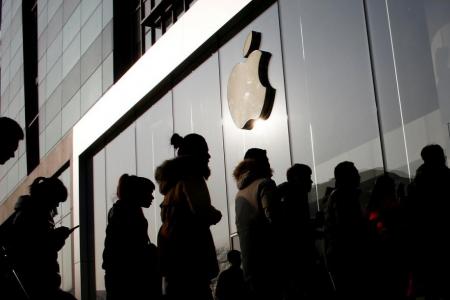Apple faces lawsuits after saying it slows down aging iPhones
Users could have been led to buy new phones instead of replacing batteries
SAN FRANCISCO: Apple Inc defrauded iPhone users by slowing devices without warning to compensate for poor battery performance, according to eight lawsuits filed in US courts.
The tweak may have led iPhone owners to misguided attempts to resolve issues over the last year, the lawsuits contend.
All the lawsuits - filed in California, New York and Illinois - seek class action to represent millions of iPhone owners across the country.
A similar case was lodged in an Israeli court on Monday, the newspaper Haaretz reported.
Apple did not respond to an e-mail seeking comment.
The company admitted last week for the first time that operating system updates released since "last year" for the iPhone 6, iPhone 6s, iPhone SE and iPhone 7 "smoothed out" power supply from batteries that are cold, old or low on charge.
Phones without the adjustment would shut down abruptly because of a precaution designed to prevent components from getting fried, Apple said.
The disclosure followed a Dec 18 analysis by Primate Labs, which develops an iPhone performance measuring app that identified blips in processing speed and concluded that a software change was responsible.
One of the lawsuits, filed on Thursday in San Francisco, said that "the batteries' inability to handle the demand created by processor speeds" without the software patch was a defect.
"Rather than curing the battery defect by providing a free battery replacement for all affected iPhones, Apple sought to mask the battery defect," according to the complaint.
The problem now seen is that users could have blamed an ageing processor for app crashes and sluggish performance - and chose to buy a new phone - when the true cause may have been a weak battery that could have been replaced for a fraction of the cost, some lawsuits state.
"If it turns out that consumers would have replaced their battery instead of buying new iPhones had they known the true nature of Apple's upgrades, you might start to have a better case for some sort of misrepresentation or fraud," said Professor Rory Van Loo, who specialises in consumer technology law. - REUTERS
Get The New Paper on your phone with the free TNP app. Download from the Apple App Store or Google Play Store now



